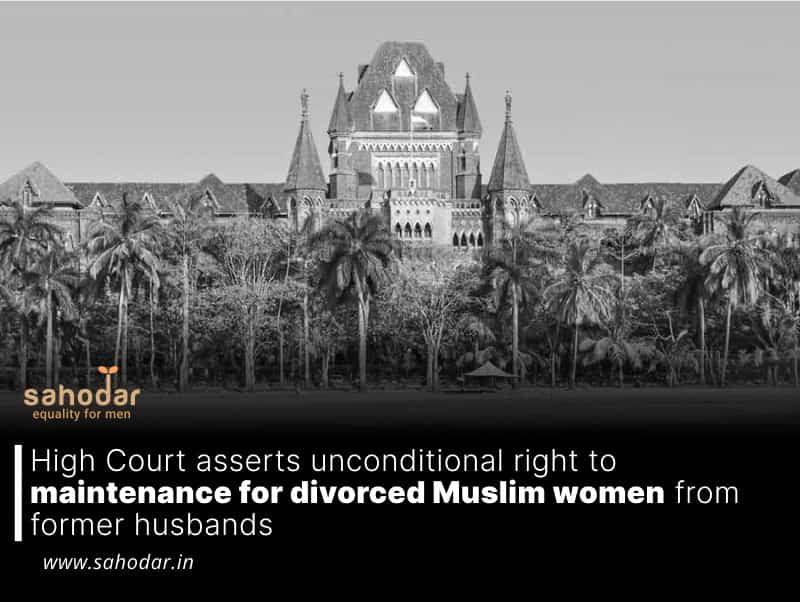The Bombay High Court, in a recent ruling, clarified that the entitlement of maintenance for divorced Muslim women is determined at the time of divorce and is not affected by the remarriage of the former wife. Justice Rajesh Patil, sitting as a single judge, emphasized that divorced Muslim women retain an unconditional right to claim maintenance from their ex-husbands, and even after remarriage, they can seek reasonable amounts as provided by the Muslim Women (Protection of Rights on Divorce) Act (MWPA) 1986. The court noted that the term “remarriage” is absent from section 3(1)(a) of the MWPA, reinforcing the unequivocal right of divorced Muslim women to receive a fair provision and maintenance from their former spouses.
“In other words, the Act seeks to prevent the destitution of Muslim women and ensure their right to lead a normal life even after divorce,” said justice Patil. “Hence the legislative intent of the Act is clear. It is to protect ‘all’ divorced Muslim women and safeguard their rights. The protection referred to in the MWPA is unconditional. Nowhere does the said Act intend to limit the protection that is due to the former wife on the grounds of her remarriage,” the judge added.
The court emphasized that the essence of the Muslim Women (Protection of Rights on Divorce) Act (MWPA) is that a divorced woman is entitled to a reasonable and fair provision and maintenance, irrespective of her remarriage. The mere occurrence of divorce is sufficient for the wife to claim maintenance under section 3(1)(a), the judge stated while dismissing a petition filed by a Chiplun resident.
The court further clarified that the entitlement of divorced Muslim women to a reasonable and fair provision and maintenance is established at the time of divorce and is unaffected by the former wife’s remarriage. The dismissal of the petition occurred in response to a challenge filed by a Chiplun resident working in Saudi Arabia against a May 18, 2017, order from the sessions court at Khed. This order had rejected his appeal against a judicial magistrate first-class order, which granted one-time alimony to his former wife, divorced through a registered post on April 5, 2008.
The couple, who married in 2005 and had a daughter in 2006, faced a separation when the husband worked in Saudi Arabia, and the wife initially resided with his parents in Chiplun, Ratnagiri district. Subsequently, in June 2007, she relocated to her parents’ home in Chiplun and filed a maintenance plea for herself and her daughter the same year.
Invoking the MWPA, the woman secured a maintenance order of ₹4.32 lakhs from the magistrate court, a decision upheld and increased to ₹9 lakhs by the sessions court in response to the husband’s appeal.
The husband’s argument in the high court, asserting that he was not liable to pay maintenance due to his ex-wife’s remarriage, was rejected by Justice Patil. The judge remarked that accepting such an argument would incentivize husbands to wait for their former wives to remarry deliberately, deeming such a condition as unfair and unacceptable, undermining the very essence of the MWPA.

